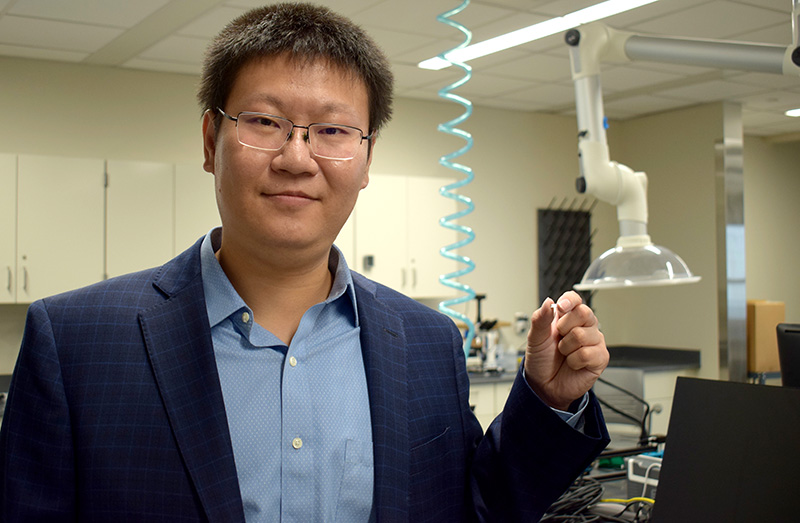April 08, 2024

A Mizzou Engineer and collaborators are developing a new type of neural probe that can improve basic understanding of brain circuits and ultimately lead to better treatments for neurological diseases.
The novelty of the probe is in its multi-model sensing, said Yi Wang, an assistant professor of industrial and systems engineering. He is working on the project with researchers from North Carolina State University and the University of North Carolina-Chapel Hill. The team recently received a three-year grant from the National Science Foundation.
Neural probes are small devices that detect neural signals produced by neurons to monitor brain activities or regions.
“Traditional probes only detect electrophysiological signals,” Wang said. “We’re designing a multi-modal neural probe that can also detect optical and chemical signals. We’re incorporating multi-modal recording sensors into one tiny probe to detect neural activities in high sensitivity and selectivity.”
Wang is using advanced 3D printing techniques to fabricate the probe with organic semiconductors. Unlike metals used—which can pose a risk when exposed to magnetic fields—these carbon-based materials are compatible with functional Magnetic Resonance Imaging (fMRI) to allow a comprehensive study of brain activities.
They’re also transistor-based, which allows researchers to amplify signals and customize functions.
And the closed-loop neuromodulation approach means the probe can adapt to changes in the brain’s activity. That makes it more effective than traditional open-loop methods where simulation is delivered without real-time monitoring or adjustment.
“The closed-loop approach lets us know what’s happening and allows us to control it with electrical and optical simulation,” Wang said. “Right now, we don’t know exactly what’s happening in the brain, so this foundational understanding will help us better understand neural diseases and devise treatments. Ultimately, we want to be able to detect and treat human brain conditions.”
Wang has developed other techniques to help researchers better understand the brain. As a Ph.D. student at North Carolina State University before, he designed a tool to record and stimulate neural activity at the same time. In addition to medical treatments, the work can also help inform advancements in brain-machine interactions.
Read more about the project here.